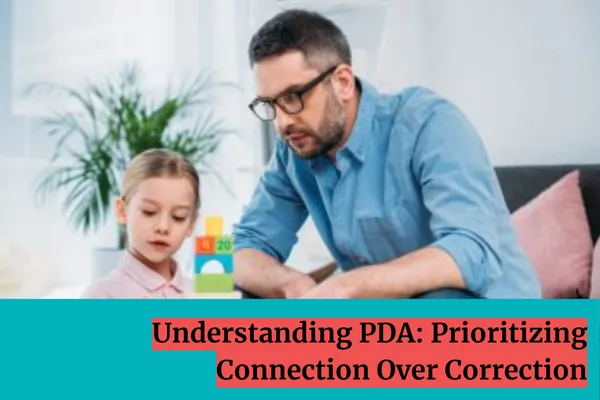
Understanding PDA: Prioritizing Connection Over Correction
Understanding PDA: Prioritizing Connection Over Correction
What is PDA?
Pathological Demand Avoidance is a profile on the autism spectrum characterized by extreme anxiety around everyday demands. Often misunderstood, many children with PDA are misdiagnosed with Oppositional Defiant Disorder (ODD) due to a lack of recognition in the United States. Understanding that PDA is anxiety-based reframes our approach from seeing defiance to recognizing distress signals.
Connection Over Correction
Central to positive parenting strategies for PDA is prioritizing connection over correction. This means stepping back from immediate demands that trigger anxiety and instead fostering a supportive environment. As parents, our role shifts from enforcement to empathy, understanding that behavior is a form of communication. By building trust and connection, we create a space where our children feel safe to express themselves without fear of judgment or punishment.
Practical Strategies for PDA Parenting:
1. Managing Demands: Adopting a low-demand parenting approach reduces anxiety triggers. It involves prioritizing essential tasks while letting go of non-urgent demands. This approach has transformed interactions with my son, fostering happier moments and voluntary engagement in activities he previously resisted.
2. Offering Choices: While some children find choice overwhelming, offering structured choices empowers without overwhelming. For instance, "Do you want to do this now or in five minutes?" provides a sense of control within safe boundaries.
3. Communicating Clearly: Clear, concise language paired with visual supports aids understanding and reduces ambiguity. Specific instructions like "Put your Legos in the bin" are more effective than general commands like "Clean your room."
4. Understanding Priorities: Not all demands are equal. Adopting a priority scale helps distinguish between essential tasks and preferences. This approach ensures that critical activities are addressed while allowing flexibility where possible.
5. Building Rapport: Approaching situations with curiosity rather than judgment opens dialogue. Instead of asking accusatory questions like "Why did you do that?", try depersonalizing with observations like "I see the plant is on the floor. What happened?"
Navigating PDA requires patience, understanding, and a commitment to fostering connection over correction. By embracing these strategies, we empower our children to thrive in their unique journey of neurodiversity. Remember, every interaction is an opportunity to strengthen our relationship and support our children's growth.
Join us at the Neurodiversity in Harmony Summit on September 13th, 2024, where experts and parents share insights and stories to empower your parenting journey. Seats are limited, so visit www.boisemusictherapycompany.com/registration to get on the waitlist and connect with a community dedicated to celebrating every brain.
